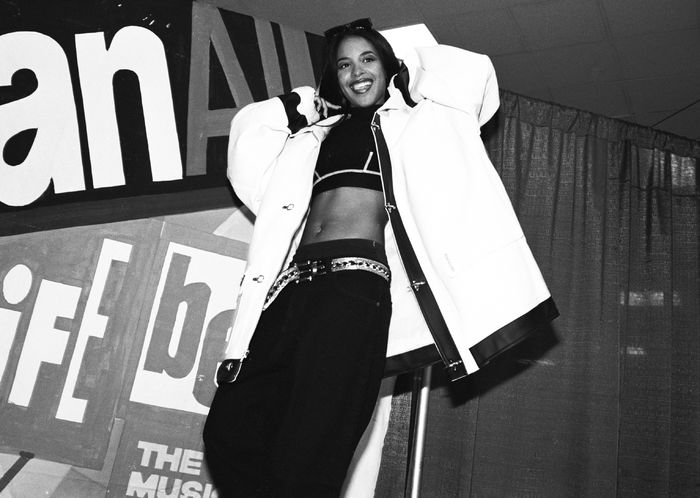Viva Zapata! The legacy of a grunge icon
Genevieve Badia-Aylin discusses the life and impact of former grunge singer Mia Zapata

On the 7th of July 1993, Mia Zapata, the vocalist of the underground Seattle group The Gits, was walking home from a music venue in the Capitol Hill area of the city. She had just stopped off to visit a friend in their basement apartment, but had headed off into the night shortly after, last being seen at around 2am in the morning. She was alone. At approximately 3:30am, her body was found by an intersection; however, due to the lack of ID found on her person, it wasn’t until fairly later that she was able to be identified, recognised by the medical examiner – themselves a long-time fan. The killer had run off without a trace: it would take almost a decade for him to be found, identified in 2002 as one Jesus Mezquia, after a burglary arrest. It was a random assault, with no previous connection between the two.
Mia was only 27 years old.
“When the news broke of Zapata’s passing, it was not simply a question of a fellow musician being brutalised – but a friend, too”
Viva Zapata! is the second studio album by the punk band 7 Year Bitch, hot on the trails of the feminist Riot Grrrl movement that had recently originated in the Pacific Northwest. Bands within the city were generally familiar with one other, thanks to the organically close, DIY nature of the Seattle scene: original guitarist Stefanie Sargent and drummer Valerie Agnew had played together before in the band Barbie’s Dream Car, while the name ‘7 Year Bitch’ had been recommended by the group’s friend, Ben London of the band Alcohol Funnycar. So, when the news broke of Zapata’s passing, it was not simply a question of a fellow musician being brutalised – but a friend, too.
The record was released in 1994, bringing 32 minutes of ear-splitting chants against male entitlement, domestic violence, and patriarchal codes of female sexuality. Within the third track on the album, simply titled “M.I.A.”, frontwoman Selene Vigil screams her questions into the devastatingly empty space:
‘Society did this to you? Does society have justice for you? If not, I do.’
“Women still can’t walk home, whether night or day, without the ever-present danger of astonishing, sickening violence”
It is 2022, and I cannot help but feel the same. Sabina Nessa, Sarah Everard, Blessing Olusegun – of course, these are only the names in our newspapers. Women still can’t walk home, whether night or day, without the ever-present danger of astonishing, sickening violence – questions of geography, clothing, attitude, ‘modesty’, none have ever made a difference, despite what the laments of insecure misogynists on half-rate podcasts or ‘well-meaning’ politicians will have you believe. As Roisin Dunne’s crushing guitar riffs collide Agnew’s relentless drum parts, each track on Viva Zapata! embodies the same old anger that these women felt 30 years ago, and which I and many others still feel today. In the fourth track, “Derailed”, there is the feeling of a plummeting freight train, metronomically driving forward as Vigil spits out her biting soliloquy; similarly powerful, “Rock A Bye” contains an insidious bass line, which lures the listener into a slow detonation of personal fury.
The whole record is rough around the edges, untouched by the pop glosses of autotune, sickly-sweet vocals or synthesisers. Listen to any of the pop music of the time – the dance-inducing tracks on Madonna’s Erotica, or Whitney Houston’s gorgeous cover of “I Will Always Love You”, for example – and your ears might just start to bleed from the saccharinity of the contrast. Of course, Viva Zapata! is a thoroughly underground album: it never reached the commercial heights of some of its grunge contemporaries – and of course, it was never meant to.
Following Zapata’s death, the non-profit organisation Home Alive was founded, offering self-defence classes for women as well as organising benefit concerts to raise funds for the murder investigation. Of course, there is an immense sadness within Viva Zapata! – it is, after all, an album risen out of trauma. However, in the midst of all its rage, there is also an unmistakable feeling of hope, of resistance. In our current, mass-communicated world, we are rapidly seeing the commodification of the political: what is ‘meaningful’ must now, as we see through pretty infographics, ‘rainbow capitalism’, and the rise of meticulously produced ‘political’ chart-toppers, be sold as a product. I am reminded of the recent film Don’t Look Up, where Ariana Grande’s character performs a pop song in an absurd effort to save the world from a ‘planet-killer’ meteor: the song’s gilded ‘impact’ comes from its capacity to be consumed - and yet, in these efforts to make the meaningful palatable, it does nothing. The meteor falls, of course. Those in power do not listen, as they’re motivated by the same capitalist consumption as the music is. I do not believe that music can be truly impactful without a certain level of rawness, of ugliness, inherent to it – that resistance can be genuinely found in a record that prizes beauty above all else.
Viva Zapata! is not a beautiful record.
 News / CUP announces funding scheme for under-represented academics19 December 2025
News / CUP announces funding scheme for under-represented academics19 December 2025 News / Cambridge welcomes UK rejoining the Erasmus scheme20 December 2025
News / Cambridge welcomes UK rejoining the Erasmus scheme20 December 2025 News / SU reluctantly registers controversial women’s soc18 December 2025
News / SU reluctantly registers controversial women’s soc18 December 2025 Film & TV / Timothée Chalamet and the era-fication of film marketing21 December 2025
Film & TV / Timothée Chalamet and the era-fication of film marketing21 December 2025 News / News in Brief: humanoid chatbots, holiday specials, and harmonious scholarships21 December 2025
News / News in Brief: humanoid chatbots, holiday specials, and harmonious scholarships21 December 2025










